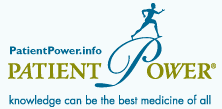May 31st, 2011 by RyanDuBosar in News, Research
No Comments »

Despite poor awareness and a lack of training on handling peripheral artery disease, internists can and should be able to recognize the symptoms and manage 95% of such cases. Experts advise using the ankle-brachial index as a quick and effective diagnostic method.
 But internists often don’t. As was reported in ACP Internist‘s previous cover story on the subject, the ankle-brachial index can be a major part of preventing peripheral artery disease, itself a major predictor of strokes and heart attacks, over and above the Framingham risk score.
But internists often don’t. As was reported in ACP Internist‘s previous cover story on the subject, the ankle-brachial index can be a major part of preventing peripheral artery disease, itself a major predictor of strokes and heart attacks, over and above the Framingham risk score.
The ankle-brachial index is the ratio of the ankle to the arm systolic pressure. A ratio of 0.90 or less indicates peripheral artery disease. Its sensitivity is 79% to 95%, and its specificity is 95% to 100%. It takes less than five minutes to perform in the office.
Yet, among the 85 respondents, 36 (42.35%) said “It’s a quick and easy test.” Another 27 (31.76%) thought, “It’s difficult to fit into the standard visit.” The final 22 (25.88%) said, “I don’t use the ABI to screen patients for PAD.” Read more »
*This blog post was originally published at ACP Internist*
May 1st, 2011 by admin in Opinion
No Comments »

The rise of prophylactic double mastectomy in women with increased risk of breast cancer has been a topic of recent discussion. In particular, this trend has been observed amongst women with the diagnosis of unilateral carcinoma in situ, or pre-invasive breast cancer. While it has been known that in women with genetic cancer syndromes, including BRCA1 and BRCA2, double mastectomy reduces risk, the efficacy of the approach is uncertain in women with other risk profiles, yet more women and surgeons seem to be doing it.
Knowing when to test, treat and act is part of art of medical practice. The ability to convey this information effectively is also an art. Both patients and doctors may have a hard time embracing watchful waiting with respect to many forms of cancer and pre-cancer. In the case of cancer of the cervix, it is known that infection with human papillomavirus (HPV) is causative in cancer development. However, only a small percentage of those infected actually go on to get cancer. Low grade dysplasia, a condition that is early in the cervical cancer development continuum, frequently spontaneously resolves without treatment. Fortunately, in the case of cervical cancer, there is now a vaccine to prevent high risk HPV infection.
“Watchful waiting” has been most discussed as a treatment strategy for prostate cancer. Read more »
*This blog post was originally published at ACP Internist*
April 9th, 2011 by RyanDuBosar in News, Research
No Comments »

In preparation of Internal Medicine 2011 in San Diego this week, the unavoidable choice to make isn’t which sessions to attend, but even before arriving: Will you pass through the airport’s security scanners, or opt for the pat down?
Physicians themselves are split on the issue, with some physicians opting out of repeat scanning in favor of the pat down search.
“I do whatever I can to avoid the scanner,” one physician told CNN. Other physicians interviewed were split on the issue one way or another. But as a frequent flier, this doctor was concerned about the cumulative effect. “This is a total body scan–not a dental or chest X-ray. Total body radiation is not something I find very comforting based on my medical knowledge.” Read more »
*This blog post was originally published at ACP Internist*
June 16th, 2010 by AndrewSchorr in Audio, Better Health Network, Expert Interviews, Health Tips, Opinion
No Comments »
 Experts say over 100,000 lives a year could be saved in the United States if patients focused more on preventive medicine. What is preventive medicine? What can you do in your everyday life that may make a long-term difference?
Experts say over 100,000 lives a year could be saved in the United States if patients focused more on preventive medicine. What is preventive medicine? What can you do in your everyday life that may make a long-term difference?
On this Patient Power program, you will hear from two board certified internists from the UW Medicine Neighborhood Clinics in Western Washington. They will discuss how having an ongoing relationship with a primary care physician who you check in with regularly –- even when you’re well –- gives you the best chance at staying healthy.
Read more »
 But internists often don’t. As was reported in ACP Internist‘s previous cover story on the subject, the ankle-brachial index can be a major part of preventing peripheral artery disease, itself a major predictor of strokes and heart attacks, over and above the Framingham risk score.
But internists often don’t. As was reported in ACP Internist‘s previous cover story on the subject, the ankle-brachial index can be a major part of preventing peripheral artery disease, itself a major predictor of strokes and heart attacks, over and above the Framingham risk score.


 Experts say over 100,000 lives a year could be saved in the United States if patients focused more on preventive medicine. What is preventive medicine? What can you do in your everyday life that may make a long-term difference?
Experts say over 100,000 lives a year could be saved in the United States if patients focused more on preventive medicine. What is preventive medicine? What can you do in your everyday life that may make a long-term difference?







